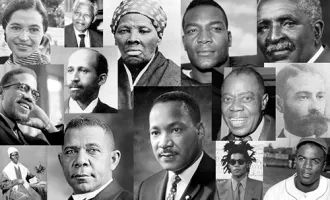
This Date in UCSF History: What is ‘Occupy’ Achieving?
Originally published in Synapse on November 3, 2011.
Two months ago, demonstrators began showing up at Wall Street to protest the inequalities of American life. The Occupy Wall Street movement caught on, with similar protests being launched in cities across the country, including the Bay Area. The Occupy Oakland protest turned ugly last week when the Oakland Police evicted the demonstrators amid clouds of tear gas.
Oakland Mayor Jean Quan, saying she had not known in advance of the police action, told the cops to cool it and asked the demonstrators to clean up their protest site. The Occupy Oakland protesters have called for a general strike on November 2nd, after Synapse has gone to press. How all this will play out, no one knows.
The Occupy movement deserves credit for changing the public debate away from the barren policy of cutting deficits during a recession to a more helpful goal of restoring jobs lost in the Great Recession (California's unemployment rate has been hovering near 12% for months). The slogan "We are the 99%" has galvanized activists to do something about the gaping income inequality that plagues America, where the top 1% controls an increasing amount of the national wealth. But exactly what that "something" is remains a mystery.
The Occupy movement needs to move to the next stage; having identified and publicized the problem, the need now is to offer a course of action to solve the problems. And therein lies the rub, as the saying goes. While the Occupy movement has been just fine in pointing out problems, there hasn't been much in the way of proposed solutions. Unlike the conservative Tea party, which was swiftly embraced by the Republican Party, the Occupy movement is not affiliated with any organized political movement.
The increasingly conservative Democratic Party is unlikely to embrace the Occupy movement with the same fervor that the Republicans showed the Tea Partiers. So a legitimate question for the Occupy movement is where do they go from here?
This is a question to be taken quite literally in some parts of the country. With the onset of winter rapidly approaching, the Occupy movement in the northern part of the United States will face a stem test from the elements in coming weeks. The flimsy tent city near Wall Street will be severely challenged by the New York winter. What happens to the protest when the snow begins to fall?
The passion of the Occupy movement has forced the story of corporate greed onto the front pages, and for this, the movement deserves great credit. The continuing scandal of big banks getting bailed out by the federal government, with no repercussions for the financial meltdown mostly caused by these same bankers, has finally moved ordinary Americans to protest.
The banks have not helped their cause by rewarding their top executives with huge bonuses at a time when millions of middle-class Americans are hurting badly. The Occupy movement is the angry reaction to all that and has served as a useful catalyst. But true change demands more than just Occupying — while I applaud the passion, I await the next step.
Political organizing to overturn the top-heavy influence of America's top 1% will be a difficult task, to be sure, but the sooner the Occupy movement starts laying out some concrete goals and pursuing their passage, the better.



